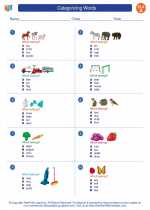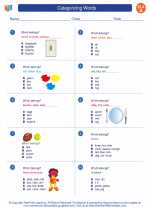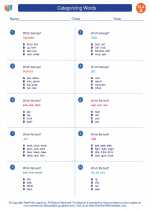An adverb is a word that modifies a verb, an adjective, or another adverb. It provides information about the manner, place, time, frequency, degree, or certainty of the action or state expressed by the verb.
2. Types of Adverbs:There are several types of adverbs, including:
- Manner Adverbs: These adverbs describe how an action is done, for example, "quickly," "carefully," "quietly."
- Place Adverbs: They indicate where the action is carried out, such as "here," "there," "everywhere."
- Time Adverbs: These adverbs provide information about when the action is performed, like "now," "yesterday," "soon."
- Frequency Adverbs: They tell us how often the action is done, for example, "often," "rarely," "always."
- Degree Adverbs: They indicate the intensity or degree of the action, such as "very," "too," "extremely."
Here are some examples of adverbs in sentences:
- She ran quickly to catch the bus. (Manner adverb)
- The cat is sleeping there. (Place adverb)
- We will go to the park tomorrow. (Time adverb)
- He often visits his grandparents. (Frequency adverb)
- It is very hot today. (Degree adverb)
To identify adverbs, ask yourself questions such as:
- How is the action being done? (Manner)
- Where is the action taking place? (Place)
- When is the action happening? (Time)
- How often is the action occurring? (Frequency)
- To what extent is the action being done? (Degree)
Adverbs can be placed before or after the verb they modify. They can also be used to modify adjectives and other adverbs. It's important to understand where to place adverbs in a sentence to ensure clarity and proper meaning.
[Adverbs] Related Worksheets and Study Guides:
.◂English Language Arts Worksheets and Study Guides First Grade. Categorizing Words
Study Guide Categorizing Words
Categorizing Words  Worksheet/Answer key
Worksheet/Answer key Categorizing Words
Categorizing Words  Worksheet/Answer key
Worksheet/Answer key Categorizing Words
Categorizing Words  Worksheet/Answer key
Worksheet/Answer key Categorizing Words
Categorizing Words 

 Worksheet/Answer key
Worksheet/Answer key
 Worksheet/Answer key
Worksheet/Answer key
 Worksheet/Answer key
Worksheet/Answer key

The resources above cover the following skills:
Students apply a wide range of strategies to comprehend, interpret, evaluate, and appreciate texts. They draw on their prior experience, their interactions with other readers and writers, their knowledge of word meaning and of other texts, their word identification strategies, and their understanding of textual features (e.g., sound-letter correspondence, sentence structure, context, graphics). (NCTE)